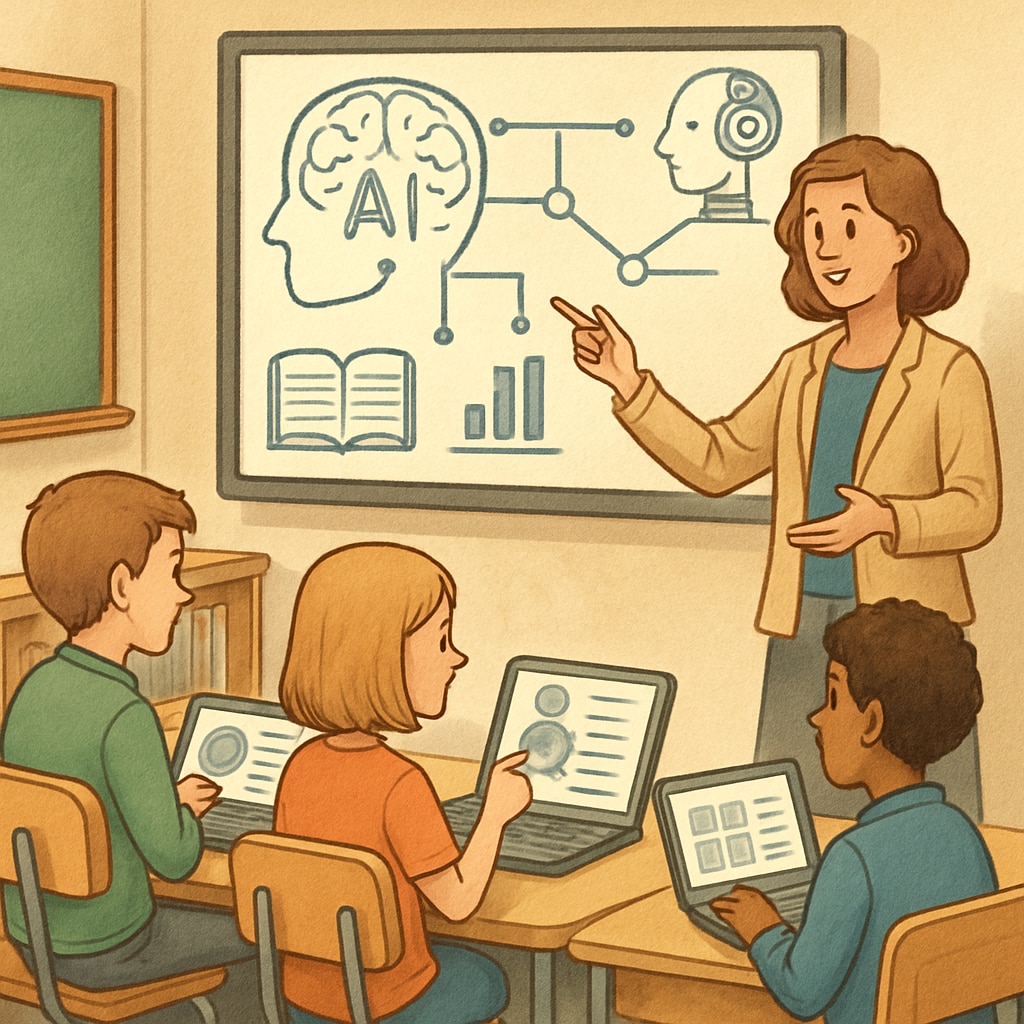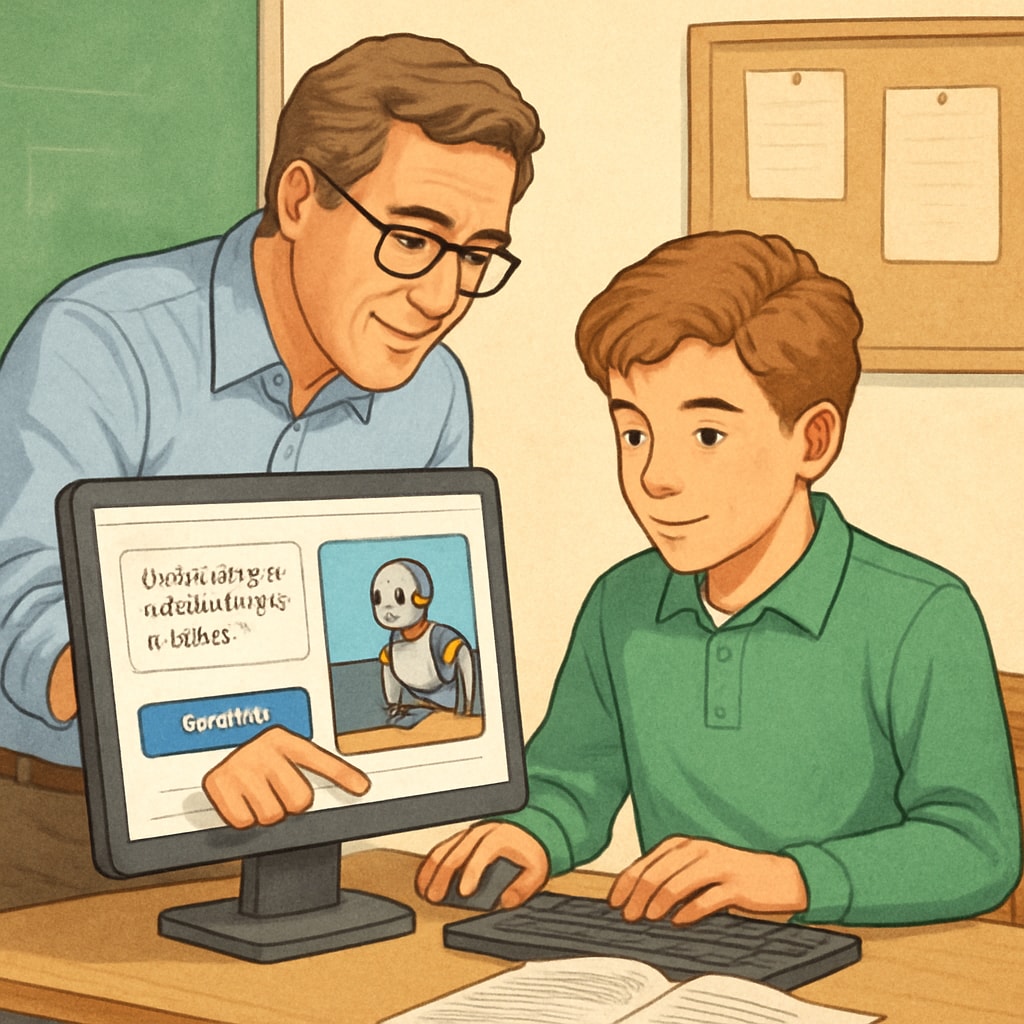Artificial intelligence (AI) is rapidly transforming numerous industries, including education. This unprecedented technological evolution has raised important questions about the role of teachers, their professional value, and the potential impact on their salaries. As AI continues to automate and enhance aspects of teaching, educators must navigate this transition, ensuring their relevance while addressing challenges to their financial and professional stability.
How AI is Transforming the Teaching Landscape
AI has already begun to revolutionize the way education is delivered. From personalized learning platforms to intelligent tutoring systems, technology now complements traditional teaching methods in significant ways. For example, platforms like Khan Academy and AI-powered tools such as ChatGPT demonstrate how AI can provide instant feedback, tailor lessons to individual needs, and even grade assignments. These advancements raise the question: if AI can perform many of these tasks, what role is left for human teachers?

While AI excels at repetitive or data-driven tasks, it lacks the emotional intelligence and nuanced understanding that human educators bring to the classroom. Teachers are more than information providers; they are mentors, role models, and emotional anchors for their students. However, the increasing capabilities of AI may lead to the perception that certain teaching roles are less critical, potentially influencing public and institutional valuation of the profession.
Reassessing Teacher Value in the AI Era
The introduction of AI has sparked a reevaluation of what constitutes “value” in teaching. Historically, teachers’ value has been tied to their ability to transmit knowledge and facilitate learning. However, as AI takes over routine instructional tasks, the focus is shifting toward skills that machines cannot replicate. These include empathy, critical thinking facilitation, conflict resolution, and fostering creativity.
To remain indispensable, educators must embrace continuous professional development. This might involve acquiring new technical skills to integrate AI tools effectively into their classrooms or focusing on the emotional and social dimensions of teaching. For example, teachers who can skillfully combine AI-driven resources with their own expertise in emotional intelligence will likely see their value grow, rather than diminish.

The Salary Conundrum: Will AI Impact Teacher Compensation?
The potential impact of AI on teacher salaries is a subject of growing concern. On one hand, AI could reduce the demand for certain teaching roles, particularly those involving repetitive tasks, thereby exerting downward pressure on salaries. On the other hand, teachers who adapt and specialize in areas where human skills remain irreplaceable may command higher compensation. The key lies in how educational institutions and policymakers perceive the evolving role of teachers.
Countries with advanced education systems may begin to prioritize and reward teachers who demonstrate proficiency in integrating AI into their teaching methodologies. For example, a teacher who uses AI to analyze student performance data and tailor interventions for struggling students adds measurable value. Conversely, those who resist adapting to technological changes may face stagnant or declining wages.
Strategies for Educators in an AI-Driven World
To navigate these challenges, educators can adopt several strategies:
- Embrace Lifelong Learning: Teachers should actively pursue professional development opportunities focused on AI and emerging technologies.
- Focus on Unique Human Skills: Developing competencies like empathy, creativity, and complex problem-solving will help educators stand out.
- Advocate for Policy Changes: Teachers’ unions and professional organizations must work to ensure that salaries and job security reflect the evolving demands of the profession.
- Collaborate with AI: Rather than viewing AI as a threat, educators should see it as a tool that enhances their ability to connect with and support students.
By adopting these strategies, teachers can not only safeguard their roles but also enhance their professional value in the AI era.
Conclusion: A Balanced Perspective on AI and Teaching
The rise of AI in education presents both challenges and opportunities for teachers. While the profession may undergo significant changes, the human elements of teaching—empathy, mentorship, and inspiration—remain irreplaceable. By adapting to new technologies and focusing on these unique strengths, educators can ensure their continued relevance and advocate for fair compensation in a rapidly evolving landscape. As a result, the teaching profession will not only survive but thrive in the age of AI.
For further reading, explore Artificial Intelligence in Education on Wikipedia and Artificial Intelligence on Britannica.


